Anton van Beek
School of Mechanical and Materials Engineering, University College Dublin, Dublin, Ireland
Flow Battery Manifold Design with Heterogeneous Inputs Through Generative Adversarial Neural Networks
Aug 12, 2025Abstract:Generative machine learning has emerged as a powerful tool for design representation and exploration. However, its application is often constrained by the need for large datasets of existing designs and the lack of interpretability about what features drive optimality. To address these challenges, we introduce a systematic framework for constructing training datasets tailored to generative models and demonstrate how these models can be leveraged for interpretable design. The novelty of this work is twofold: (i) we present a systematic framework for generating archetypes with internally homogeneous but mutually heterogeneous inputs that can be used to generate a training dataset, and (ii) we show how integrating generative models with Bayesian optimization can enhance the interpretability of the latent space of admissible designs. These findings are validated by using the framework to design a flow battery manifold, demonstrating that it effectively captures the space of feasible designs, including novel configurations while enabling efficient exploration. This work broadens the applicability of generative machine-learning models in system designs by enhancing quality and reliability.
T-METASET: Task-Aware Generation of Metamaterial Datasets by Diversity-Based Active Learning
Feb 21, 2022


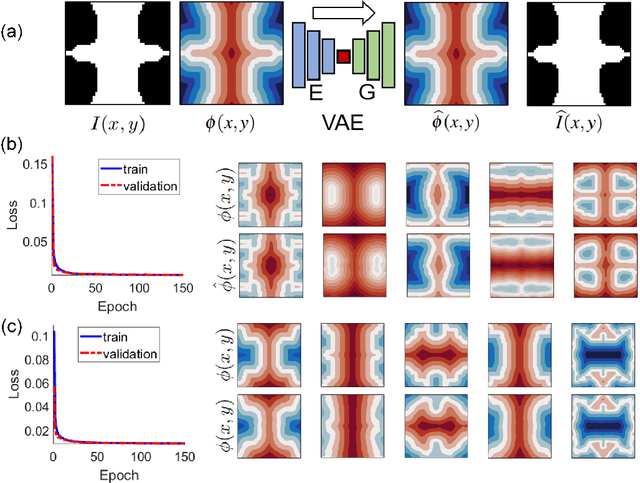
Abstract:Inspired by the recent success of deep learning in diverse domains, data-driven metamaterials design has emerged as a compelling design paradigm to unlock the potential of multiscale architecture. However, existing model-centric approaches lack principled methodologies dedicated to high-quality data generation. Resorting to space-filling design in shape descriptor space, existing metamaterial datasets suffer from property distributions that are either highly imbalanced or at odds with design tasks of interest. To this end, we propose t-METASET: an intelligent data acquisition framework for task-aware dataset generation. We seek a solution to a commonplace yet frequently overlooked scenario at early design stages: when a massive ($~\sim O(10^4)$) shape library has been prepared with no properties evaluated. The key idea is to exploit a data-driven shape descriptor learned from generative models, fit a sparse regressor as the start-up agent, and leverage diversity-related metrics to drive data acquisition to areas that help designers fulfill design goals. We validate the proposed framework in three hypothetical deployment scenarios, which encompass general use, task-aware use, and tailorable use. Two large-scale shape-only mechanical metamaterial datasets are used as test datasets. The results demonstrate that t-METASET can incrementally grow task-aware datasets. Applicable to general design representations, t-METASET can boost future advancements of not only metamaterials but data-driven design in other domains.
Data-Driven Multiscale Design of Cellular Composites with Multiclass Microstructures for Natural Frequency Maximization
Jun 11, 2021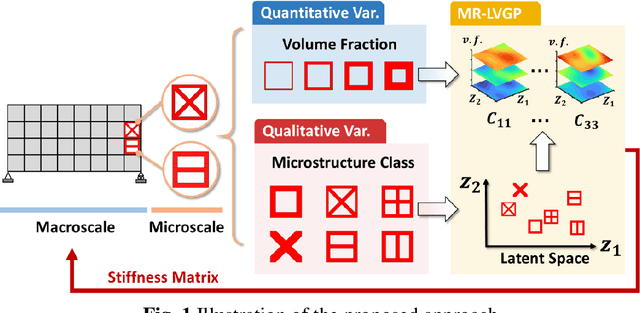
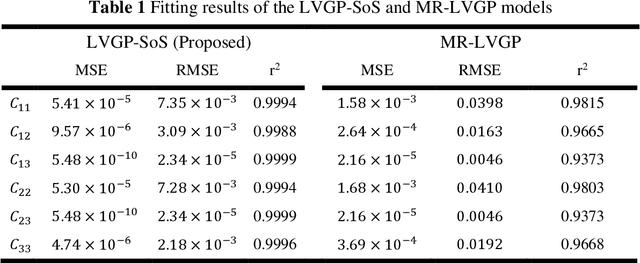
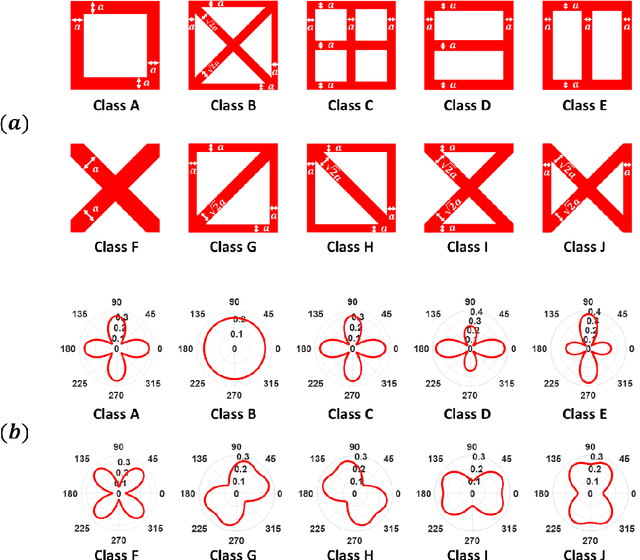
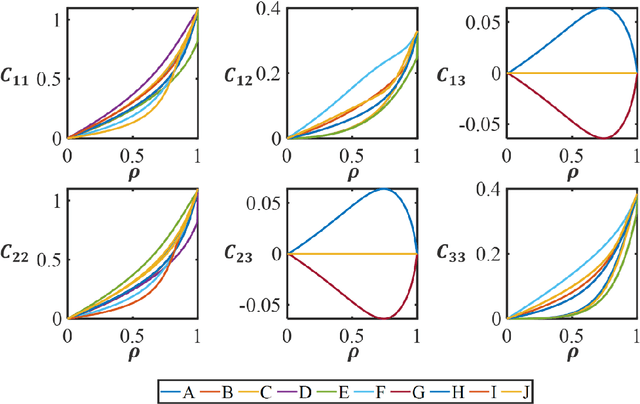
Abstract:For natural frequency optimization of engineering structures, cellular composites have been shown to possess an edge over solid. However, existing multiscale design methods for cellular composites are either computationally exhaustive or confined to a single class of microstructures. In this paper, we propose a data-driven topology optimization (TO) approach to enable the multiscale design of cellular structures with various choices of microstructure classes. The key component is a newly proposed latent-variable Gaussian process (LVGP) model through which different classes of microstructures are mapped into a low-dimensional continuous latent space. It provides an interpretable distance metric between classes and captures their effects on the homogenized stiffness tensors. By introducing latent vectors as design variables, a differentiable transition of stiffness matrix between classes can be easily achieved with an analytical gradient. After integrating LVGP with the density-based TO, an efficient data-driven cellular composite optimization process is developed to enable concurrent exploration of microstructure concepts and the associated volume fractions for natural frequency optimization. Examples reveal that the proposed cellular designs with multiclass microstructures achieve higher natural frequencies than both single-scale and single-class designs. This framework can be easily extended to other multi-scale TO problems, such as thermal compliance and dynamic response optimization.
 Add to Chrome
Add to Chrome Add to Firefox
Add to Firefox Add to Edge
Add to Edge